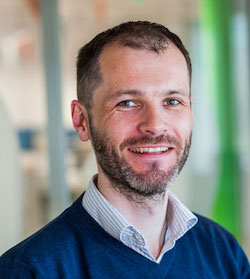
Ray Dalio founded Bridgewater Capital in 1975. He transformed the institutional investment firm from a bedroom operation to a firm that employs about 1,700 people and manages funds worth approximately $160 billion for 350-plus institutional investors.
Over the years, Dalio built a framework for making better investments and business decisions, which he shares in his book Principles.
No matter your type of work or company, his framework is relatively easy to apply.
1. Weigh Second- And Third-Order Consequences
If you’re about to make a big decision, pause to consider any unintended or long-term results.
Several years ago, Dalio decided to retire from his company. He wanted to spend more time on other pursuits like writing his book, but leaving a senior leadership role is difficult.
So Dalio initially spent even more time working, which was the opposite of what he wanted. However, he had to manage his transition and find a suitable replacement CEO.
On a more practical level, you may find it difficult to get up before work and exercise for 30 to 60 minutes. An increase in energy and better health over the medium-term are examples of second-order consequence, while becoming more productive at work represents a third-order consequence.
At work, changing your company’s email service provider to a more advanced marketing automation tool might solve an immediate business problem. However, you’ll probably have to spend more time training your people to use this new tool.
Dalio said, “…first-order consequences often have opposite desirabilities from second-order consequences, resulting in big mistakes in decision making.”
2. Now… Own Your Pain
In 1982, Mexico defaulted on its debt to the United States. Dalio went on television to explain why the U.S. was heading for a depression. He also invested in gold and T-Bills futures to hedge his company against this economic downturn.
Instead, thanks to an intervention by the U.S. Federal Reserve, the U.S. economy rebounded, the stock market went on a bull-run, and Dalio’s firm lost millions of dollars.
He wrote,
“My experience over this period was like a series of blows to the head with a baseball bat. Being so wrong — and especially so publicly wrong — was incredibly humbling and cost me just about everything I had built at Bridgewater.”
Wrong decisions are painful, but Dalio believes these moments are opportunities for growth. He wrote,
“Self-reflectiveness is the quality that most differentiates those who evolve quickly from those who don’t. Remember: Pain + Reflection = Progress.”
A HR manager might spend months and thousands of dollars recruiting a star candidate only for the new employee to quit after a few weeks. In that case, he could reflect on the hiring process and on the role itself before going to the market again.
Or a developer could invest dozens of hours creating a product only to receive a series of angry emails from customers who complain it’s not up to scratch. Rather than wallowing, she could use these consumer insights to improve the next version.
3. Weigh Your Decisions
It’s easy to obsess about a big decision and then fail to act.
Rather than letting emotions overwhelm you, learn what you can about the problem. Often you can triangulate a big decision by consulting other experts with contrasting views. Dalio wrote,…chances are you do it all the time — pretty much whenever you ask yourself, ‘Who should I listen to?’ But it’s almost certainly true that you’d do it a lot better if you gave more thought to it.”
Once you complete this process, dare to act.
You can always reflect on what worked and didn’t work and improve your principles for making future decisions.
Ready to supercharge your productivity?
I’ve created a cheat sheet that will help you FOCUS immediately. Follow this and you’ll accomplish more than you can imagine.

